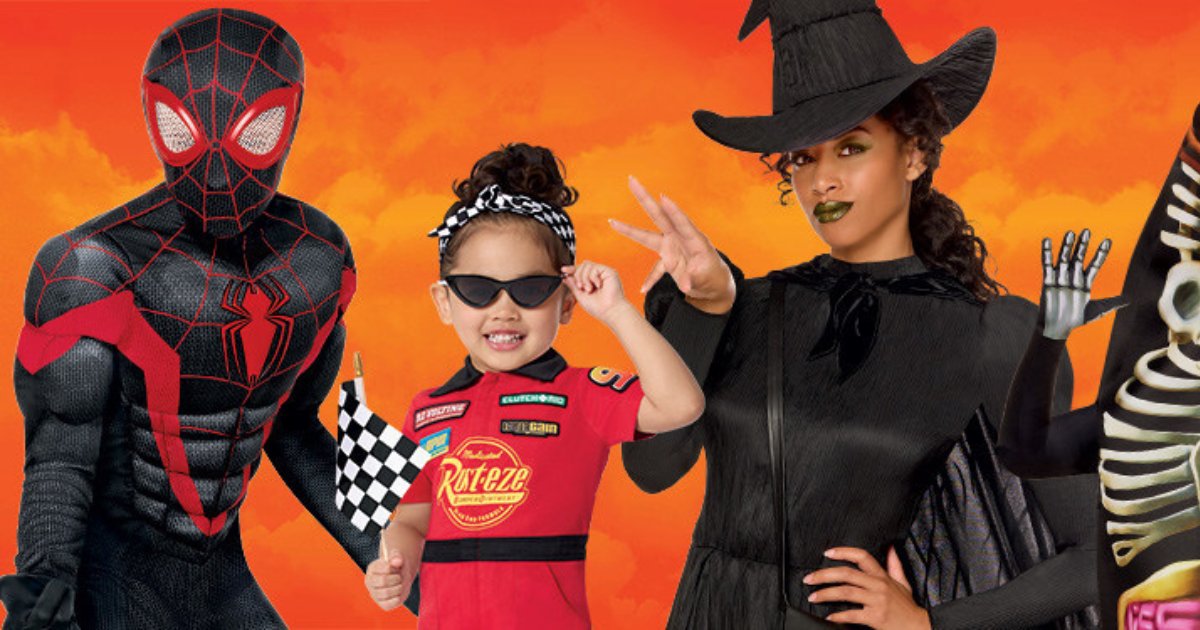Scaring Up New Retail Strategies for Halloween

By Mark Seavy
With retail prices for Halloween products increasing 15-20% due to tariffs, sales will rise this fall despite a decline in unit volume, industry executives said.
The higher prices are reflective of the increased tariff-related costs faced by retailers and suppliers at this year. Wholesale prices have increased 15-20% this year as well, although that can be reduced to 7-10% for retailers directly importing goods and covering tariff costs. At wholesale clubs, retail prices have increased 10%, according to licensing executives.
Target, for example, is pricing licensed costumes at $40 (Fortnite, Minecraft), up from $35 a year earlier. Spirit Halloween held the line on price increases ($25-$35 for boys’ costumes), and Walmart took smaller mark ups ($25-$30 for boys’ costumes, $25 for girls’ costumes, and $20-$25 for toddlers’ costumes). Additionally, Walmart mitigated the higher cost of licensed costumes, which typically carry a 20% royalty in addition to the 30% tariff, with sales of generic items, industry executives said.
These higher retail prices appear to factor in to the National Retail Federation’s forecast for $13.1 billion in consumer spending on Halloween-related products this year. That marks an increase from $11.6 billion in 2024 and from $12.2 billion in 2023.
This year’s sales are expected to be spread across costumes ($4.3 billion), decorations ($4.2 billion), candy ($3.9 billion), and greeting cards ($700 million), according to survey of 8,045 U.S. adults conducted by Prosper Insights & Analytics in early September.
In addition to higher prices, Halloween product suppliers suffered tariff-related shipping delays as retailers waited out constantly shifting costs. Many retail orders halted in April and May when tariffs on imported goods from China were at 134% but resumed once they were cut to 30%.
Now, the bulk of sales are expected to occur in October, more specifically in the final two weeks of the month in the run up to Halloween on October 31, industry executives said. The shipping delays also forced retailer Spirit Halloween to cancel its typical August 1 grand opening event, with all stores opening mid-month. Spirit has more than 1,500 stores this year.
“With the cost increases everyone has had to absorb, you are looking at significantly higher retail prices this year,” a retail executive said. “But I don’t think we are going to see consumer spending drop significantly on Halloween. It is too early for the recessionary cycle and people need this break and it will give consumers that moment of rest.”
The sudden popularity of the Netflix film KPop Demon Hunters, which had 266 million views by early September, set off a scramble by costume suppliers for the license. Spirit, which focuses on DTRs, secured it in late August with sales expected to start this week. Jakks Pacific’s Disguise division gained a wholesale agreement for the IP for 2026.
Franchises like Minecraft and Fantastic Four are expected to be popular this Halloween season following successful films, and the surprise blockbuster Sinners is also projected to drive costume sales.
“There is a lot more diversity [across IP-related Halloween products] because there wasn’t really a big thing this year,” a licensing executive said. “You had surprises like KPop and Sinners, but there wasn’t anything planned. Minecraft did better than expected, so you see more products available, but if you look back a couple of years ago there was a movie that dominated [in Halloween products]. This year the assortment is all over the place and that is hard for mass retailers because they like to anchor [behind a single IP].”
Overall, Halloween sales are also expected to be affected by the absence of Party City, which had operated Halloween City stores in the past. It closed after filing for bankruptcy protection in 2023 and again last year. It was purchased in early 2025 by Joel Weinshanker’s Ad Populum. Since then, no single retailer has picked up the former Party City business, which is likely to contribute to a decline in unit sales. And while a market remains for adult cosplay, “it is a hard space to compete in because adults are more finicky than kids,” a retail executive said.
Additionally, suppliers are narrowing their focus on licenses due to a “consolidation on SKUs since retailers are going deeper on fewer bets,” said Tara Cortner, President and General Manager at Disguise. And while Disguise is carrying lawn décor, a new category for the company, it isn’t “going after it as aggressively as I thought we would,” Cortner said. For example, Disguise is fielding a four-foot Minecraft inflatable Creeper this fall.
“Each year there has been a reduction in the number of products retailers can carry in the stores,” Cortner said. “The market was already evolving that way, but the tariffs have focused it more. We are trying to do more gender-neutral items like jumpsuits [Pokémon, Ghostbusters] so that we can do more than one peg at retail. If you can satisfy everyone with a single peg, that is ideal.”




